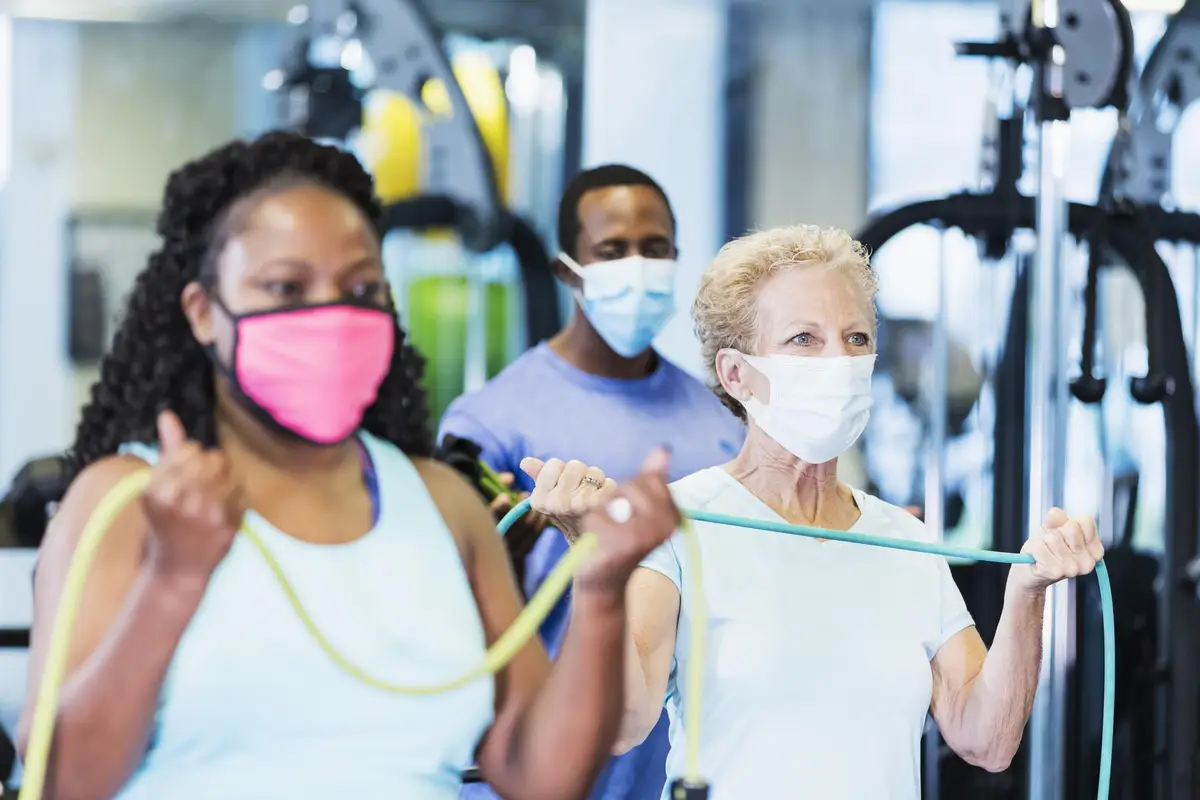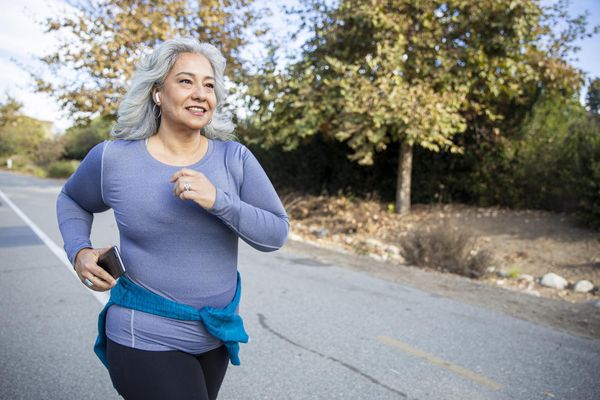L. Alison Phillips, Iowa State University and Jacob Meyer, Iowa State University
Group exercise is very popular: Nearly 40% of regular exercisers participate in group fitness classes. In advance of the coronavirus pandemic, the American College of Sports Medicine predicted that group fitness would be one of the top three fitness industry trends in 2020 – for good reason.
Exercise has clear benefits for your health and well-being, and the side effects – think lowered blood pressure, improved glycemic control, better sleep – are overwhelmingly positive. And exercising in groups may have particularly beneficial effects.
If you've been considering joining an online group class – or been encouraged to by others – here are some research-based reasons why that might be a great idea.
Everyone else is doing it, why not you?
Other people influence your attitudes and emotional responses to exercise. That is, they can affect how you feel about exercising, which is critical for determining whether you do it or not. If you get to know others who exercise regularly, you start to perceive exercise as more positive, common, desirable and doable.
Psychology and exercise researchers like us know that people are influenced by those around them in a few different ways. Knowing other people who lift weights or take a spin class influences your explicit and implicit attitudes – your thoughts and feelings – about exercise.
It also molds what are called social norms: your perceptions about whether other people exercise and if you think you should.
Fun with friends is motivating
Even if you've already decided exercising is something you want to do and intend to do, there are different kinds of motivation that can determine if you are successful at beginning and maintaining exercise. Exercising with others can boost those motivations.
The highest quality or type of motivation is called intrinsic motivation – you're doing something because the behavior itself is enjoyable, satisfying or both. If you enjoy exercise and not just the positive feelings you get after you've worked out, you are more likely to stick with it. Exercising with other people can supply that enjoyment, even if the activity itself is difficult or otherwise not something you love. Group exercise can turn working out into a fun social activity, which could lead to you continuing to do it.
Exercising with others can also satisfy some basic psychological needs. Any kind of exercise can help someone feel in control of their choices, but the social support from a group can reinforce a sense of autonomy. Similarly, group exercise can increase feelings of mastery – thanks to growing competence, for example, at spinning or step aerobics. And it will certainly increase your connectedness with others. People naturally choose to keep up fulfilling behaviors in the long term and they promote mental health – a win-win.
In contrast, exercise feels less compelling if your motivation is extrinsic – for instance, someone else is telling you to exercise, or you're primarily doing it to lose weight. In this case, sticking to a fitness regimen becomes less likely and less rewarding. Similarly, if the extrinsic factors go away – maybe you lose weight or decide you don't care anymore about the number on your scale – then the motivation to exercise likely disappears as well.
Buddies help make it a habit
Exercising with others can make the whole process easier and more habitual. Friends can be your cue as well as your reward for exercising.
First, you look to other people to learn how to do things, and it's a human tendency to model your behavior after those you see around you. When you observe others breaking a sweat, it can start to build your confidence in your own ability to exercise – psychologists call this belief in yourself self-efficacy. You may then tend to model your behavior after others', too. This is very important for starting a new exercise routine, because how much you believe in your own ability to take on that yoga class or try some new equipment at the gym will predict whether you give it a shot.
Second, friends can remove some of the barriers to exercising. A workout buddy can provide reminders and encouragement to exercise, hold you accountable and even help with tangible logistics, like giving you a ride or sending links for Zoom class opportunities.
And don't discount the competitive urge. A little friendly competition provided by your group can also boost the intensity of your effort.
Habits are automatic behaviors that you don't have to spend a lot of energy forcing yourself to do – they're your default, preferred behavior. You do them consistently and frequently without using up all your willpower. Exercise pals can help here, too. Habits need a cue to trigger the behavior, and a friend regularly texting that she'll see you at the pool on your usual day to get together could do the trick.
Habits also require a reward to maintain, and intrinsic motivation that comes from exercising with others can be the payoff that keeps exercise part of your daily routine.
Sticking with each other and exercise
Group exercise appears to hold some benefits that individual exercise may not.
Getting engaged in group exercise may also lead to a more consistent and resilient exercise experience. Past research has shown that people who feel more connected in their exercise class attend more sessions, arrive on time, are less likely to drop out, are more resistant to disruption and are more likely to have greater mental benefits from the exercise. Since quitting exercise programs is common and disruptions may easily throw people off their exercise routine, getting involved with a group exercise class might be a particularly good way to head off these problems.
When choosing an exercise group to join, consider how similar the other participants are to you – think about age, gender, interests. You're likely to form a more cohesive group with people you identify with, and these interconnected groups are more likely to stick together and continue exercising.
Group support while safely distant
So exercising with others can provide all the elements needed for a successful, enjoyable and active lifestyle. Especially if you're feeling isolated by the pandemic and its effects, now could be the perfect time for you to give remote group exercise a try. If the weather works, maybe you can find a yoga class that meets outdoors with plenty of space between participants, or a running club whose members stay masked.
Virtual classes may function as a substitute for in-person group exercise classes. Yes, they may take a little more motivation to find and access, or call for equipment you don't already have at home. But remote classes have additional potential benefits, including flexibility in schedule, diversity in activities and exercise types, and connecting with others who are physically distant.![]()
L. Alison Phillips, Associate Professor of Psychology, Iowa State University and Jacob Meyer, Assistant Professor of Kinesiology, Iowa State University
This article is republished from The Conversation under a Creative Commons license. Read the original article.







